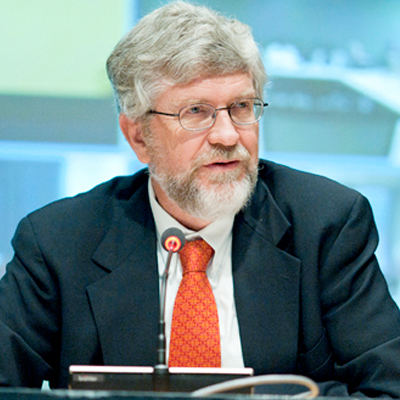Providing necessary healthcare to patients in rural areas and with devastating illnesses
The low income nations of the world are beleaguered with resource constraints that increase health disparities between rich and poor. While the treatments and resources necessary to protect the health of the global community are often available, systemic issues of poverty, isolation, and lack of resources prevent adequate care from reaching those that are in the most need. Dr. Sten Vermund, of Vanderbilt University, has a passion for identifying where systems are not working well, figuring out the deficits in those systems, and fixing them. The particular focus of his group at the Vanderbilt Institute for Global Health is HIV prevention and treatment in low income nations. The group works in Mozambique, Zambia, and Nigeria with general populations; in Pakistan they work with persons who inject drugs; in China, they work with men who have sex with men, both homosexual and bisexual; and in the rural US they apply lessons learned overseas. In all these venues, Dr. Vermund is characterizing the magnitude of the problem and intervening with programs that are designed to provide HIV services, often in venues where no chronic care is provided for any disease and health services are severely under-capacitated.
Dr. Vermund’s passion for improving the health and wellness of the global community extends beyond his work in HIV prevention and treatment. Whether solving the issues of drug stock outs, suboptimal health worker communication skills, poor relationships with local traditional healers and traditional birth attendants, or community reluctance to engage new care services, Dr. Vermund seeks to fix each problem in each venue where he works, within a research construct that enables his lessons learned to be shared. By taking known modalities for prevention and treatment, and asking, "why are these not being deployed" or "why are these not being effective" in real-world, resource-constrained settings, he and his team offer novel solutions for implementations with existing treatment options. Thus, through the building of quality programming with a foundation of pragmatic research, Dr. Vermund’s efforts have begun to guide the health systems reforms that are improving sustainable care infrastructures, often borrowing business or engineering constructs of quality improvement.
Current research includes:
-
Health Capacity Building: In Mozambique, Dr. Vermund and his team are expanding health systems capacity and training local healthcare workers in quality improvement. As Mozambique is one of the most impoverished areas in the world, Dr. Vermund’s efforts are making substantial improvements to reform the health system in meaningful ways that will have an impact on tuberculosis, cervical cancer, HIV, and more.
-
Preventing HIV Acquisition: Dr. Vermund and his team are working closely with populations in Asia that are at a higher risk of getting HIV. Specifically, Dr. Vermund is targeting street injectors and men that have sex with men in order to create lasting interventions that will reduce the transmission of the disease while providing compassionate care to those infected.
-
Cervical Cancer Screenings: Cervical cancer is on the decline in high income countries due to the diagnostic tools including pap smears and vaccines that are accessible to patients. However, in low income countries diagnostic and preventative tools are often unavailable. Dr. Vermund believes that given that we have existing tools to prevent women from dying of cervical cancer, it is necessary to implement programs in low income countries where patients are still afflicted. In Zambia alone, his colleagues have screened more than 170,000 women (through January 2015) using a very simple screening technology and a completely nurse-driven program.
-
Malaria Testing: Dr. Vermund’s team and colleagues developed a sophisticated but simple specimen purification strategy for testing for malaria. Their strategy has improved the malaria testing kit performance substantially. While his work has thus far been implemented in Zambia, more funding would allow Dr. Vermund’s engineering and chemistry to broadly implement such diagnostic tools in other areas where Malaria is affecting large portions of the population.
-
Anesthesia in Rural Communities: In many rural communities in low income countries, there are a lack of anesthesiologists thereby preventing community hospitals from operating upon patients in need of surgery. Dr. Vermund’s colleagues have coordinated efforts in Kenya to train hospital personnel to become a regional expert in anesthesiology. Therefore, by training local community members, patients can receive the care that they need from community members that they trust.
Bio
As a young pediatrician, Dr. Sten Vermund found that working abroad presented a host of problems he had not encountered in the States. It was apparent that there were many tools at the medical community’s disposal however, due to accessibility, lack of specialized education, poverty, or location of communities, many patients were not receiving the adequate care that they deserved. Dr. Vermund has since then dedicated his professional career to improving the quality of care available to patients internationally. Using community-based care providers and sustainable interventions, he and his team have made a lasting impact on the health and wellness of the global community.
Website: http://globalhealth.vanderbilt.edu
In the News
Publications
Videos
Awards
2010 and 2014 Alumni awards: Albert Einstein College of Medicine Alumnus Lifetime Achievement Award and Allan Rosenfield Alumni Award for Excellence in Public Health, Mailman School of Public Health, Columbia University
Douglas K. Richardson Award for Perinatal and Pediatric Health Care Research, Society for Pediatric Research, 2012
Elected Member, Institute of Medicine, National Academy of Sciences, 2012
Third Annual Unsung Hero Award, Blood:Water Mission, 2014
http://www.bloodwater.org/blog/blog-article/1159/a-hero-in-fighting-the-hiv-crisis#.VIX8bT9AI8E

